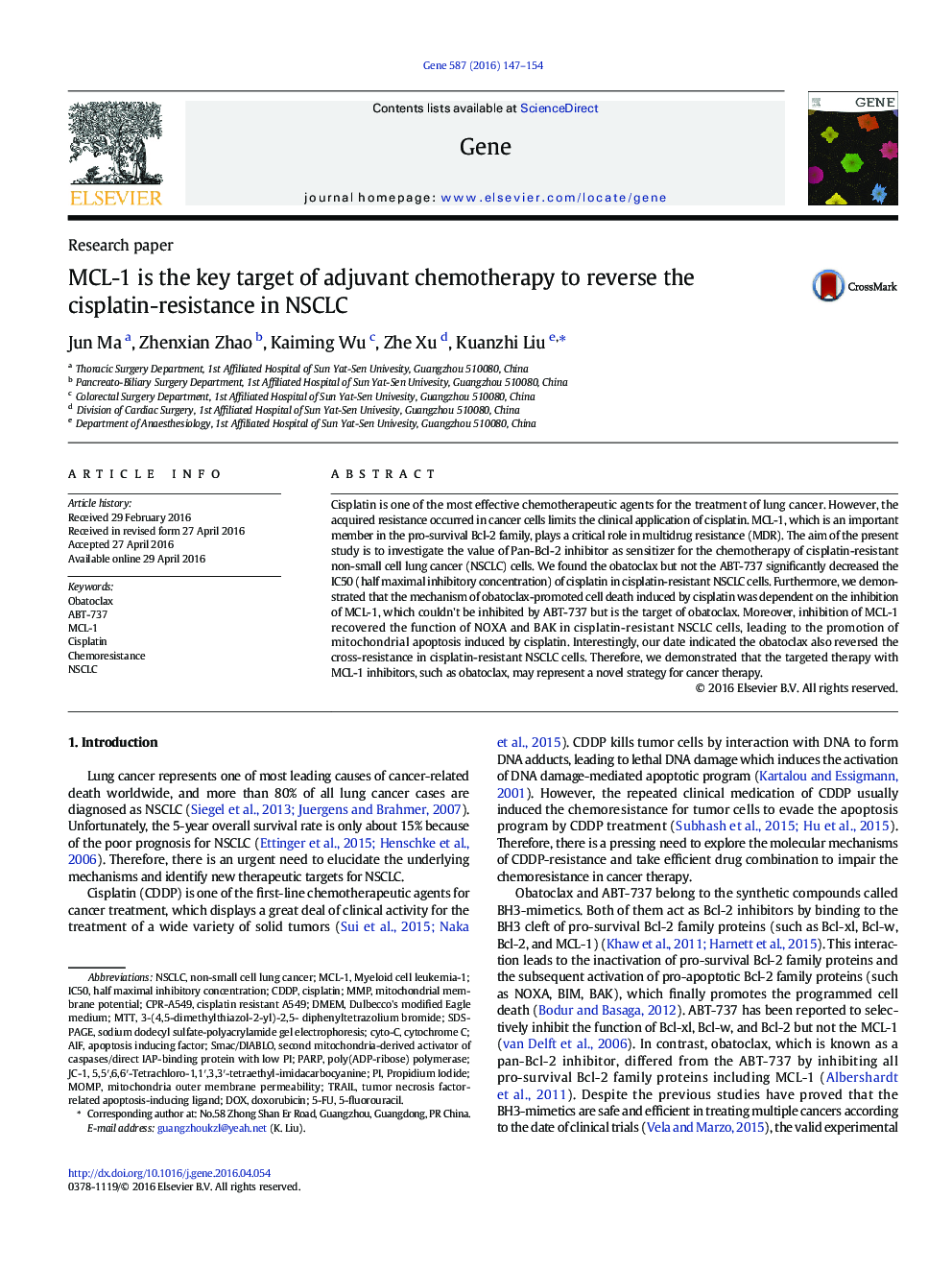| Article ID | Journal | Published Year | Pages | File Type |
|---|---|---|---|---|
| 2815003 | Gene | 2016 | 8 Pages |
•Obatoclax can reverse the cisplatin-resistance in NSCLC.•Obatoclax reverses the cisplatin-resistance by overcoming the overexpression of MCL-1 in CPR-A549.•Combination with obatoclax and cisplatin leads to the release of BAK and NOXA from MCL-1 in CPR-A549.•Obatoclax reverses the cisplatin-resistance via induction of mitochondrial apoptosis in CPR-A549.•Obatoclax reverses the cross-resistance of CPR-A549 to doxorubicin, TRAIL and 5-fluorouracil.
Cisplatin is one of the most effective chemotherapeutic agents for the treatment of lung cancer. However, the acquired resistance occurred in cancer cells limits the clinical application of cisplatin. MCL-1, which is an important member in the pro-survival Bcl-2 family, plays a critical role in multidrug resistance (MDR). The aim of the present study is to investigate the value of Pan-Bcl-2 inhibitor as sensitizer for the chemotherapy of cisplatin-resistant non-small cell lung cancer (NSCLC) cells. We found the obatoclax but not the ABT-737 significantly decreased the IC50 (half maximal inhibitory concentration) of cisplatin in cisplatin-resistant NSCLC cells. Furthermore, we demonstrated that the mechanism of obatoclax-promoted cell death induced by cisplatin was dependent on the inhibition of MCL-1, which couldn't be inhibited by ABT-737 but is the target of obatoclax. Moreover, inhibition of MCL-1 recovered the function of NOXA and BAK in cisplatin-resistant NSCLC cells, leading to the promotion of mitochondrial apoptosis induced by cisplatin. Interestingly, our date indicated the obatoclax also reversed the cross-resistance in cisplatin-resistant NSCLC cells. Therefore, we demonstrated that the targeted therapy with MCL-1 inhibitors, such as obatoclax, may represent a novel strategy for cancer therapy.
